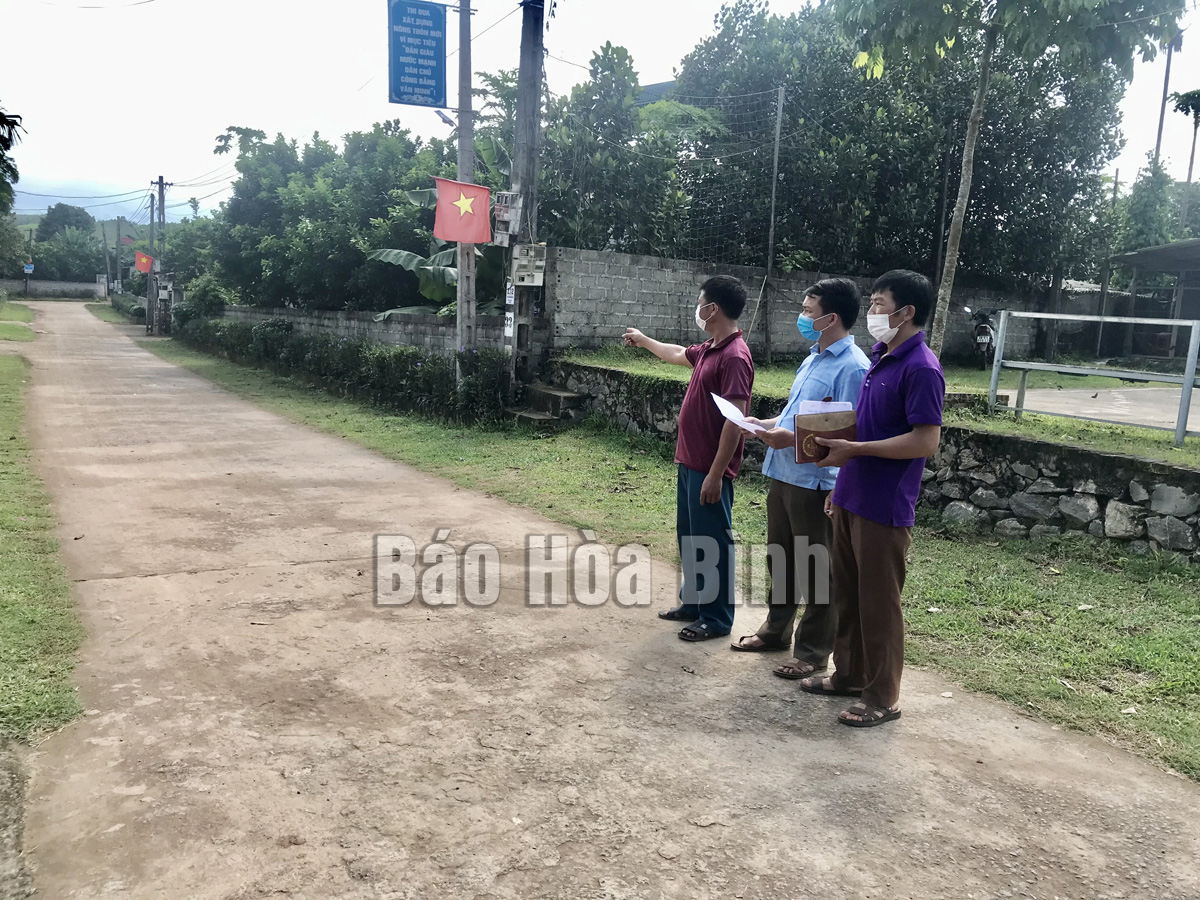
(HBO) - Defining mass mobilisation as one of the important tasks, Tan Lac has actively encouraged local residents to implement the Party and State’s policy and law, thus laying the foundation for the implementation of its socio-economic development.
Thanks
to effective mobilisation of locals’ engagement in new-style rural areas, so
far, Nen 2 village in Thanh Hoi (Tan Lac) has become a model rural residential
area.
The model new-style rural area of Nen 2 in Thanh
Hoi commune has changed positively since the locality launched the new-style
rural area building programme in 2011. From a locality with poor infrastructure
system, so far, Nen 2 village have 96 percent of its roads concretised and lighting
system has been installed in all corners of the village.
Head of Nen 2 village Bui Van Hien said that the
management board of the village and the local government has worked in an open
and transparent manner with promoted democracy, while respecting and listening
to opinions of local residents, thus ensuring that locals engage in the
decision-making process of all works.
The mass mobilisation system of Tan Lac from the
district to village levels has proved its efficiency. So far, the district has
built 141 models of "Effective mass mobilisation” in all fields such as
economy, culture, society, and defence-society.
The grassroots democratic regulations have been
fully implemented, ensuring the mastery rights of the people. Local residents
have involved in discussing issues related to their rights and interest, as
well as in the construction of public works.
Bui Thi Tu, head of the district Party
Committee’s Mass Mobilisation Commission said that in order to call on locals
to implement the Party and State’s policies and laws in an effective manner,
the pioneering role of local officials, Party members and prestigious people in
the community is crucial. Along with ensuring openness and transparency, the
people must be placed in the core position in the design of policies and plans
related to their interest, she said, stressing the need to diversify the method
of mobilisation to suit each village and hamlet./.
The Standing Board of the Hoa Binh provincial Party Committee has agreed in principle on a proposal by the Standing Board of the Party Committee of Hoa Binh city to gather feedback on the city’s 1:2000 zoning plan, which forms part of its broader urban development strategy.
Hoa Binh province has made notable progress in public administration reform and digital government development, with the satisfaction index among citizens and businesses reaching over 84%, according to recent government evaluations.
Thanks to great efforts by local authorities in recent times, the governance and public administration performance of Mai Chau district has been significantly improved.
In the afternoon of June 6, the Party Committee, the People's Council, the People's Committee and the Fatherland Front of Lac Son district solemnly held a meeting to celebrate the 139th anniversary of the district's founding (1886–2025) and the 79th anniversary of the establishment of the district's Party Committee (1946–2025). There was the attendance of Mr. Bui Van Thang, the Vice Chairman of the Provincial People's Council; Mr. Quach Tat Liem, the Vice Chairman of the Provincial People's Committee; Ms. Dang Bich Ngoc, the Deputy Head of the National Assembly Delegation of the province; as well as the former leaders of the province and district through various periods, who are the natives of the district.
Implementing the Politburo’s Resolution No. 57-NQ/TW on breakthroughs in science – technology, innovation, and digital transformation is a golden opportunity for the northern mountainous province of Hoa Binh to renew growth model, improve competitive edge and shorten digital gap.
Resolution 57-NQ/TW, issued by the Politburo on December 22, 2024, identifies sci-tech, innovation, and digital transformation as strategic breakthroughs to build a developed and prosperous nation. In Hoa Binh province, this spirit is not just a slogan, it’s being put into action through concrete initiatives that form a "new development triangle”: digital citizenship, digital economy, and digital administration.



